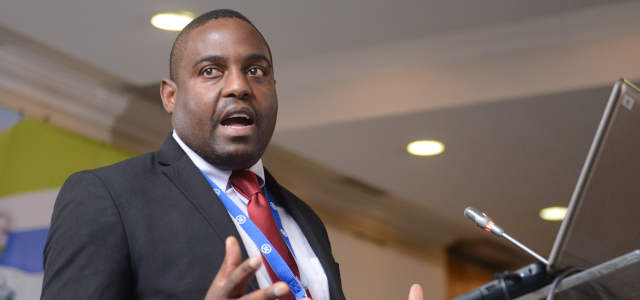The first in series of workshops intended to support the implementation of 16 major water infrastructure projects, prioritised for implementation between 2021 and 2030 by the African Union Heads of State as part of Programme for Infrastructure Development in Africa Priority Action Plan 2 (PIDA-PAP 2), took place this week.

The workshop was hosted by the African Union Development Agency (AUDA-NEPAD) on May 18, 2021 with support from Global Water Partnership (GWP)’s African Coordination Unit and other partners.
Slow rate of water investments in Africa addressed
The workshop is part of intensified efforts to promote job creation through accelerated planning, preparation, financing, and implementation of regional and transboundary water investments in Africa. Transboundary waters are those that cross at least one political border.
“The work forms part of the Continental Africa Water Investment Programme (AIP) which will transform the investment outlook for water projects on the continent, and leverage US$ 30 billion in water and sanitation investments by 2030,” said Mr Alex Simalabwi, Executive Secretary of GWP Africa Coordination Unit.
“With over 54 shared river basins in Africa, cooperation in the management and development of transboundary water resources is a key building block towards regional and economic integration,” said Dr Towela Nyirenda-Jere, Head of Economic Integration at AUDA-NEPAD.
“However, the pace of investment in transboundary water projects in Africa remains very slow and this is hampering progress towards the continent’s economic growth targets and achievement of the Sustainable Development Goals 2030,” she added.
The African Development Bank (AfDB) estimates that $64 billion is required annually to meet the 2025 Africa water vision of water security for all, yet only $10-$19 billion/year is invested in water infrastructure.
“Following the adoption of the 16 water projects at the African Union Heads of State Summit in February 2021, AUDA-NEPAD, with GWP and other partners, will support the needs of individual projects through engagement and partnership, as well as a series of tools developed to advance infrastructure projects,” said Dr Towela Nyirenda-Jere.
The African Union Commission, AUDA-NEPAD, and partners have developed an Implementing Resourcing and Partnership Strategy, for PIDA PAP 2.
Focus on securing financing for water investment projects
As one of the major obstacles to African water investments is financing, Mr Simalabwi explained that the Resourcing Strategy, aligned to the overall PIDA Financing Strategy developed by the African Development Bank, would promote the financing of PIDA PAP 2 water projects to potential financiers across from both public and private sources.
“This Resourcing Strategy will also broker links between project owners and suitable financiers, and provide ongoing support to secure finance as the project moves through its various cycles,” added Mr Simalabwi.
Early stage project preparation, quality, job creation opportunities supported
The early-stage planning and preparation of water project in Africa is frequently inadequate, impeding the subsequent implementation and completion of projects.
“The AUDA-NEPAD Service Delivery Mechanism (SDM) is an infrastructure project preparation instrument which address early-stage project preparation challenges,” said Mr Ibrah Wahabou, Economic Integration Division: AUDA-NEPAD.
“The SDM supports projects all the way from the definition phase through to the project’s close. The SDM assesses the quality of the project and it also works with the project owners to maximise job creation opportunities,” he added.
Next steps in PIDA PAP 2 water project support
Fourteen of the 16 priority water projects presented on their status, and were supported to identify areas of potential support.
Recommendations on the next steps necessary to advance the projects were identified and will be acted on by AUDA-NEPAD, with support from GWP Africa. As an immediate first step, AUDA-NEPAD and GWP Africa will organise bilateral meetings with each project owner.
The workshop was attended by 126 participants from the African Union Commission, the African Development Bank, Development Bank of Southern Africa, Regional Economic Communities, River Basin Organizations, African states, and Water Sector Partners.
